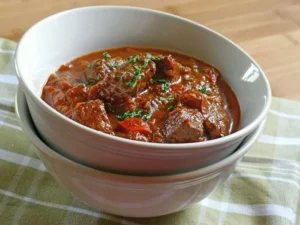Our society has become focused on the number on the scale and just like many others, I too fell into this obsession – I started weighing myself daily, disregarding my main goal, which was fat loss. This was until I tried an experiment of throwing away this habit and focus more on how I felt and looked in the mirror. The results in the end? Being the strongest and most confident I had ever been!
A major part of tracking our journey towards our goals is the ability to quantify success. When it comes to health, wellness, and fitness, the all-mighty scale reigns supreme and the number on it is the standard by which we measure our progress.
There are far better metrics for success, such as body composition, level of fitness, sleep quality, relationship with food and health indicators like blood pressure and cholesterol. Still, when I think of the masses of people I have worked with, almost all of them wanted one thing – to change that number on the scale, rather than focusing on fat loss.Why the Scale Lies About Your Fat Loss
We all are aware that obesity is an epidemic globally. Slimming down is undoubtedly a good thing for many. Still, the simple distinction of losing pounds measured by a scale does not tell the whole story. There are far more important health implications to factor in, as well as the distinction between fat loss and weight loss.
The bottom line is your weight doesn’t paint a complete picture. Health risks occur from lifestyle excesses. Consume too little, and your organs will likely fail at some point. With too many calories, the wrong nutrients, and not enough exercise, you can expect a similar outcome. While the under-nourished and over-nourished may look substantially different on the outside, what is happening on the inside is what’s important.Weight Loss and Fat Loss Are Not the Same
The only thing the scale can do is measure your total body weight. That includes everything: fat, muscle, bone, organs, blood, water, gut contents and muscle glycogen. The scale lies doesn’t tell you how much of that weight is fat and how much is muscle.
Most scale-focused dieters assume that weight loss is good and weight gain is bad. But what if the weight gain is 100% pure muscle?
What if half the weight you lost was muscle (that can happen if you don’t eat an appropriate diet to build and feed muscle while you’re losing weight).
Muscle is the weight you want to keep. Fat is the weight you want to shed.Water Loss and Fat Loss Are Different Too
Your body weight can fluctuate 2-4 pounds a day or more from shifts in water alone. That shift could be even greater over the course of the first week on a diet, especially a reduced-carb diet. The heavier you are to start, the bigger the first week’s weight loss (including water) is likely to be.
Losing water weight is easy. When I was prepping for my last physique competition a year ago, I had I would drop up to 5-10 pounds overnight to make my muscles pop more on stage. I used natural diuretics, saunas, dehydration tricks and stopped drinking. It is not a pleasant process to say the least. The only thing I wanted after I got off stage was to chug water. The morning after, surprise surprise, I had gained back that 5-10lbs with just drinking and rehydrating myself.
If you’re not a weight class athlete or bodybuilder, what good is it to lose water weight only to gain it back as quickly as you lost it? That’s how diets fool you.Glycogen and Sodium Add Weight
Carbohydrates are stored in the muscle as glycogen and water is stored along with them. That’s why your weight can tick up a few pounds when you eat more carbs. Add sodium and you may gain even more.
For those wanting fat loss, the sudden increase on the scale without knowing about body composition could be a cause for freaking out.
For those wanting muscle gain, the increase on the scale without knowing about body composition could be cause for celebration.
But both the panic and the celebration were premature. The scale lied again — in both directions. The burner didn’t gain fat weight and the builder didn’t gain muscle weight — it was just glycogen and the water that came along with it.What’s In Your Gut Also Has Weight
Everything in your digestive system has weight. So if you’ve eaten some “heavy” meals recently, you’ll weigh more than if you haven’t been eating much. That includes healthy foods too! That bowl of quinoa, roasted vegetables and lean steak? Yep you are going to gain some weight after eating it. If you don’t eat anything for a day, you could lose a lot of weight, literally overnight. But rest assured, the weight you lose is not just body fat.
Haven’t had a bowel movement in a few day? You bet your weight will reflect this irregularity. This also explains weight loss seen with colon cleansing. This is one of the oldest weight loss scams in the book. This kind of weight loss is yet again not fat-loss.THAT Time of the Month May Add Weight Too
As females, we are subject to hormonal fluctuations depending on where we are in our menstrual cycles. Generally, women experience anywhere from 5-10lbs weight change the week before they get their periods. This is a result of altered digestion and water metabolism in our bodies. Referring back to the above, both of these factors have a huge influence on our weight.
How to Really Gauge Your Fat Loss Progress
– Body composition – methods accessible to most may not be the most accurate, but if you use a consistent method, you can get a sense of the trends. Whatever methodology you use, body composition tells you a lot more about your health than weight alone does.
– Circumference measurements – measuring key points like your chest, waist, belly, hips and thigh with a measuring tape will show if you are losing fat in the right places, not muscle from places you want to keep.
– Progress pictures – taking progress pictures on a weekly basis will help you actually see the results that are happening in your body.
– How your clothes fit – the clothes will not lie to you, as you will feel the change in the way they fit almost instantly. Even better, if you have a pair of jeans you have bought a while ago, but cannot fit in them today – they can be a great indicator on how you are doing on your weight loss journey.
– How you look in the mirror – ask a friend too! Those closest to you can sometimes see what you can’t. Listen to them.
– Check in with your doctor on your blood pressure, blood sugar, cholesterol and other health markers
– Assess your fitness – are you stronger? Can you run longer, do more burpees, make it through bootcamp without feeling like dying?Are you trying to lose weight? Book an appointment with me today and get started on diet plan custom tailored, just for you!
About the Author: Ana Plenter
Ana Plenter is a an Award Winning Personal Trainer, Fitness Competitor & Competition Coach and the Founder of Build My Body Beautiful & Body Beautiful Fitness
FAT LOSS VS. WEIGHT LOSS. WHY YOUR SCALE IS A BIG FAT LIAR.
Subscribe to newsletter
Exclusive fitness and nutrition content and special offers







